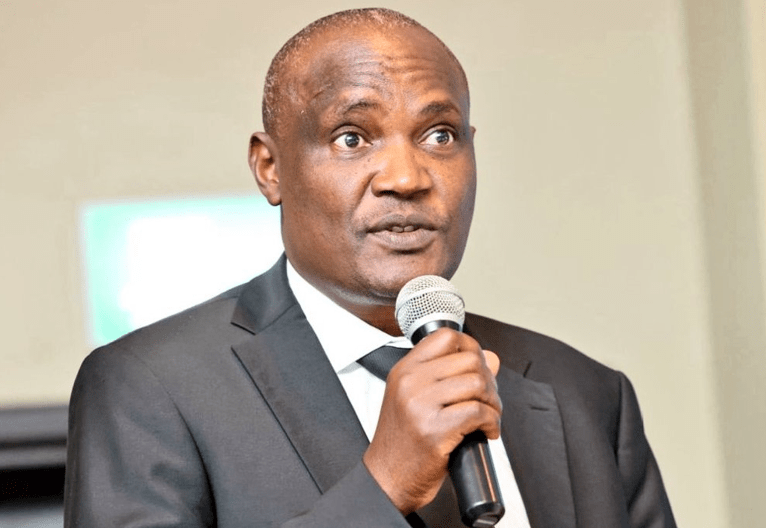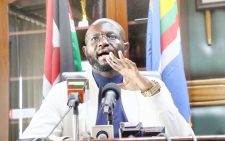Thousands risk dropping out of college over funding crisis

Thousands of students in institutions of higher learning risk dropping out unless the National Treasury disburses at least Sh5.9 billion to the Higher Education Loans Board (HELB) for their loans.
Already, the financial quagmire facing HELB has seen thousands of applicants for the loans either being turned down or put on hold as the management await to see whether the National Treasury would release the required money to enable learners from poor backgrounds continue with their studies.
Thousands of university students who began reporting for new academic year yesterday in various institutions across the country were left in limbo over the availability of the funds.
Reports of the delay comes in the wake of revelations by President William Ruto that his government intends to abolish Helb and Technical and Vocational Education and Training (TVET) funding and in its place, establish the National Skills and Funding Council to connect the two levels in order to provide a credit transfer framework and to support academic progression.
Addressing the nation on the new year, Dr Ruto said the National Education Fund will mobilise grants, bursaries, and scholarships from private and public sponsors to cover non-tuition costs.
“To bridge the current higher education funding gap of up to 45 per cent, the government will establish the National Skill and Funding Council that amalgamates Helb, TVET, and University Funding Board.
“This immediately doubles the current Higher Education Loans Board funding from Sh11 billion to Sh22 billion and eliminates interest on Helb loans,” Dr Ruto, who did not specify the timeframe the new body would be established, stated.
Tuition and upkeep
Majority of loan applicants come from poor households and require financial support from Helb to pay for their tuition and upkeep. Most universities require full payment of a semester’s fees to admit students and delay in disbursement, therefore, risks forcing some freshmen as well as those already admitted to postpone their studies.
HELB has sent to the National Treasury of budgetary proposal of Sh11.3 billion as funding for the 2022/23 financial year, but has so far only released about Sh5.4 billion in two tranches of Sh 2.7 billion for the first and second quarters.
As such the government has delayed to release the third and fourth quarter of the tranches, putting the already hard pressed HELB in a more pecuniary doldrums.
Sources at Anniversary Towers where HELB is headquartered told People Daily several applications that have so far been submitted have either been turned down or left pending.
The dire financial crisis at HELB has forced university student leaders to write to President William Ruto seeking his intervention over delayed disbursements by the National Treasury to the students’ loans dispenser.
“It is our request that an intervention or directive is issued to settle the blame-shifting games between HELB and the Treasury, and comrades receive their loan disbursements to enable them meet tuition and accommodation costs,” the Kenya University Student Organisation (KUSO) president Anthony Manyara says in the letter.
Manyara says thousands of students are facing uncertainty over their enrollment to subsequent academic sessions due to lack of funds to meet their tuition and accommodation costs.
“At the moment, thousands of students are staring into the future with uncertainty following yet again, another delay by the Higher Education Loans Board, HELB, to release student Loans and bursaries,” Manyara stated.
But HELB chief executive Charles Ringera downplayed fears that thousands of students risk cutting short their studies, and instead choosing to remain optimistic that the government will soon release the money.
Besides the delay by the Treasury to disburse annual allocation, Ringera also attributes the problem to an increase of more than 140, 000 learners under the HELB programme, which as a result overshot their budget.
Apparently, Ringera said, HELB has at least 341, 000 learners that benefits from its loans scheme. Data from the Universities Funding Board (UFB) — the State agency that guides the allocation of cash for students— shows the population grew 23.2 percent to 324,182 in the year ending June from 271,446 last year.
Inadequate cover
Government funding for the students also hit a four-year high of Sh41.9 billion but still remains inadequate to cover the tuition costs. Allocation to HELB from the Treasury jumped from Sh7.5 billion in 2015 to Sh15.2 billion, but it has failed to keep pace with rising students’ population.
The record rise is linked to the lowering of the entry grade to public universities to C+ for government-sponsored students five years ago.
“The delay in disbursement is as a result of the academic calendar not being synchronised with the National Treasury’s programme in disbursement of funds. I think it is high time the two systems are synchronised to avoid their annual problem,” Ringera says.
HELB gives loans to students admitted to both public and private universities as well as those in technical and vocational institutions. The agency funds needy students to the tune of between Sh35,000 and Sh60,000 per year, based on their economic background.
Of the total loan disbursed, Sh8,000 is sent directly to the university as tuition fees and the balance to the beneficiary’s bank account in two equal tranches covering the first and second semesters.
The beneficiaries are expected to clear their loans within four years, a pointer of how layoffs and freeze in hiring plans have hit young employees.
The government gives capitation based on the number of students and the cost of courses at the universities.
Under the model, the government should ideally cater for 80 percent of the unit cost while the remaining 20 percent is borne by the students and the institutions.
Appearing before the Education Committee recently, HELB chief finance officer Mary Wachira disclosed that last December, the board had reduced the average amount offered to students for loans from about Sh45,000 to Sh37,000. Ms Wachira also revealed that for a student to be comfortable they need an annual budget of about Sh200,000.









